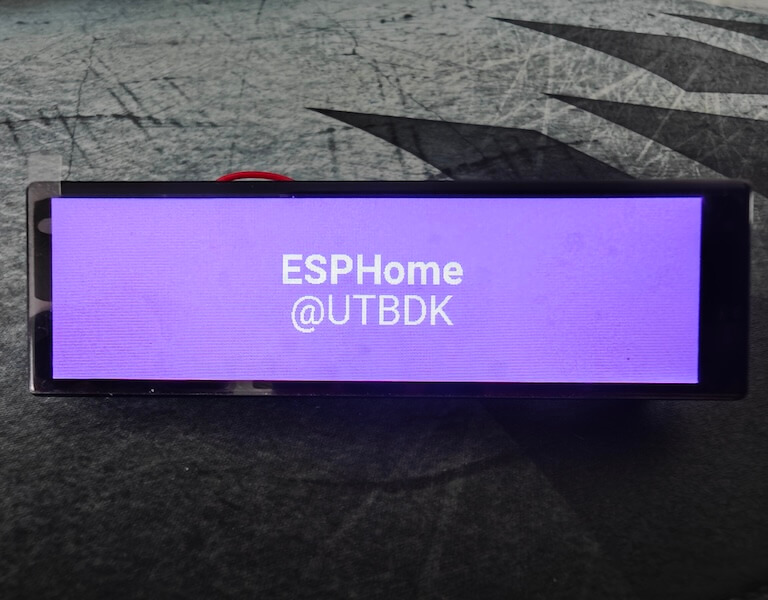These changes from the upstream repo(s) adds the proper init code + software reset funcationality. The upstream repo for the T-Display S3 Long used reset pin function only since that device connects a GPIO to it.
The example YAML for using this device is here https://github.com/clowrey/ESPhome-JC3248W535EN/
A collection of my ESPHome components. Tested on ESP Home v2024.2.1 and may be broken on older ones :)
To use this repository you should confugure it inside your yaml-configuration:
external_components:
- source: github://buglloc/esphome-components
refresh: 10minYou can take a look at samples of usage of those components in examples folder.
axs15231 display (wip)
AXS15231 Display used (and tested) on T-Display S3 Long:

Requirements:
- ESP-IDF framework so far
- Quad SPI
Minimal example:
external_components:
- source: github://buglloc/esphome-components
components: [ axs15231 ]
spi:
id: quad_spi
clk_pin: 17
data_pins:
- 13
- 18
- 21
- 14
display:
- platform: axs15231
dimensions:
height: 640
width: 180
auto_clear_enabled: false
cs_pin: 12
reset_pin: 16
backlight_pin: 1
rotation: 0
lambda: |-
it.fill(Color::random_color());See the full example in the examples folder.
Post about: ESPHome: T-Display S3 Long
PinkyWinky integration
PinkyWinky (BLE beacon) integration.
Requirements:
- ESP-IDF (requires
esp32_ble_tracker)
Minimal example:
external_components:
- source: github://buglloc/esphome-components
components: [ pinky_winky ]
time:
- platform: homeassistant
esp32_ble_tracker:
pinky_winky:
- id: my_pinky
mac_address: "11:22:33:44:55:66"
secret: "so-secret-much-strong"
binary_sensor:
- platform: pinky_winky
id: my_pinky_button
input: my_pinky
name: "Pinky button"See the full example for usage with Seeed Studio XIAO ESP32S3 in the examples folder.
Post about: Open Sesame: PinkyWinky
